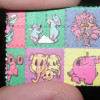如果你的午餐是在超市买的一顿饭,喝着一瓶碳酸饮料,那么你很有可能吃了相当多的超加工食品。也被称为“工业生产的食用物质”。这是一种大规模廉价生产的食物。但是,节省我们钱包的东西可能会让我们付出健康的代价,越来越多的证据表明,超加工食品与心脏病、抑郁症、痴呆和癌症有关。医生兼广播员克里斯·范·图勒肯在他的新书《过度加工的人:为什么我们都吃不是食物的东西……我们为什么停不下来?”
克里斯·范·图列肯:有一个很长的正式的科学定义,它用了几页纸,因为提出这个定义的人,嗯,2010年提出这个定义的团队,试图涵盖各种不同的食物。但简略地说,如果它是用塑料包装的,并且含有你在家庭厨房中通常找不到的添加剂,比如乳化剂、稳定剂或甜味剂,那么它就是超加工食品。添加剂并不是真正的问题。它们是产品经过超加工的标志。超加工不仅仅是添加剂。
克里斯·史密斯-这是什么时候开始流行的?
克里斯·范·图勒肯:我喜欢这个问题,因为这是20世纪80年代我成长的时候发生的事情。我想你和我年龄相仿,我今年44岁,我妈妈会和我谈论加工食品的危害。长期以来,人们一直担心食品加工。当我们处理事物时,我们会改变它们。人类加工食物的历史已经超过一百万年了。我们认为处理过程大致上是好的。超加工技术的出现是因为巴西的一些科学家观察到了国家营养状况的不可思议的转变,肥胖从极其罕见,几乎闻所未闻变成了主要的公共健康问题在10到20年的时间里。但与此同时,人们购买的石油和糖也减少了。他们以饼干和面包的形式食用油和糖,这些产品他们决定称之为超加工产品。所以他们作为科学家所做的,你们会很清楚,听众也会很清楚,他们是在把一个想法,一个概念作为一个假设来研究,在接下来的十年里,在过去的十年里,在他们创造这个定义的过去13年里,我们有大量非常可靠的数据将这些产品与,对健康的负面影响联系起来。
克里斯·史密斯:但是我们为什么要开始消费这些东西呢,克里斯?
Chris van Tulleken -嗯,它是在20世纪70年代加速发展的时候出现的。所以真正的食物的问题是它总是很贵。所以在我的书中,我谈到了超加工产品的第一个例子,可能是用人造黄油代替黄油。黄油一直都很贵。你得给牛喂草,挤牛奶,摇牛奶,做黄油,黄油会腐臭,这整件事都让人头疼。它很贵。因此,即使在19世纪晚期的法国,用便宜的东西代替黄油,植物油也成了一项大工程。一旦工业化学家发现了如何将液态植物油转化为固体脂肪并与水乳化,人造黄油——人造黄油——就诞生了。所以人造黄油可能是第一个进入市场的东西。这是简单的节省成本。 And part of the definition of UPF is that these products were about profit. And that's going to sound a bit abstract to some of your more scientific listeners, but it's actually really important when you consider food was invented by mainly female domestic scientists over the last few hundred thousand years. And they did it because they wanted to nourish their friends, their family, their community. This food is developed by very financialised companies. And I mean a very particular thing by that, these are companies that have very large owners. They're owned by asset managers. There's a very small number of companies that make UPF and they have absolute legal obligations to generate financial growth and profit. And that incentivises them very strongly to use the cheapest possible ingredients to make the most addictive possible food. And, I think addiction is an important part of this story.
克里斯·史密斯:有什么证据表明,除了潜在的成瘾性之外,这实际上是有害健康的?
Chris van Tulleken—我们已经有了通常的三层证据,你需要将潜在的有害变量与负面的健康结果联系起来。所以我们有了这种底层的实验室证据,这给了我们很多关于食物是如何伤害我们的线索。我们有研究表明超加工食品很软,而且能量密集。它能量密集,因为它是干燥的。它是干的,因为如果你把食物中的水分去掉,如果你把它干了,它有很长的保质期而且它的能量密度很高,因为它很美味。所以我们认为这种食物的消耗速度超过了我们的饱腹激素。所以当我们吃真正的食物时,我们必须咀嚼它。里面有很多水。当我们消耗卡路里时,我们开始释放荷尔蒙,告诉我们已经饱了。超加工食品通常比真正的食品消耗得快得多。 If you think of supermarket bread versus sourdough bread. Anyone who makes their bread at home or buys expensive bread, and it is really expensive sourdough, will know that it's much chewier and denser than the kind of emulsified foams that make up more than 95% of the bread we all eat. So we consume it quickly and we've got lots of lab evidence about some of the additives like the emulsifiers and their effect on the microbiome, the colorings and some of the other additives and their effect on the brain. We've then got lots of epidemiological evidence. And the big problem for the epidemiologists, the population scientists who studied ultra-processed food, is their question was, is this just salty, fatty, sugary food? Like maybe we could have a simpler definition that just focused on the nutrients. And so they did statistical controls in all of the dozens of prospective studies that have been done looking at early death rates, dementia, inflammatory disease, metabolic disease, heart attacks, strokes. They controlled for fat, salt, sugar and fiber and lots of other things. And what they saw was that the effect on early death, dementia, all those negative health outcomes remained the same once you'd adjusted for the nutrients. So the processing does seem to be important. And then finally we've got a really good clinical trial. It's small, but it was conducted by one of the world's leading nutrition scientists, a guy called Kevin Hall at the National Institute of Health, in the States. And that chimes with all of the epidemiological data. So we've got pretty good evidence over the last decade that I would say there's real consensus among independent scientists. The people I work with at the World Health Organization at UNICEF, the scientists who aren't involved with the food industry, my colleagues at UCL, colleagues at Imperial, lots of colleagues in France, so big institutions around the world, there's real consensus building that this is the primary driver of pandemic obesity, this category of food.
克里斯·史密斯:我们能做些什么呢?因为整个世界实际上都沉迷于这种食物生产系统。要解开这个要花很长时间。
克里斯·范·图勒肯——我的书向读者提议。有一种“边吃边吃”的实验,你可以参与到实验中来,所以边吃边吃,随着你对食物的了解,它可能会变得恶心。最后,我认为要求个人改变是不公平的。这是大多数人唯一能负担得起的食物。我们需要政府给这种食物贴上标签,我们需要让真正的食物便宜得多,我们需要彻底改变我们的食品体系。最重要的是,我们需要将政府和慈善机构等政策制定者与食品行业分开。目前,食品行业几乎完全掌握了政策制定者和所有的基础研究。所以我们得先理清头绪。
- 以前的世卫组织“迎头赶上”弥合疫苗缺口
- 下一个减肥药显示出一些希望









评论
添加注释